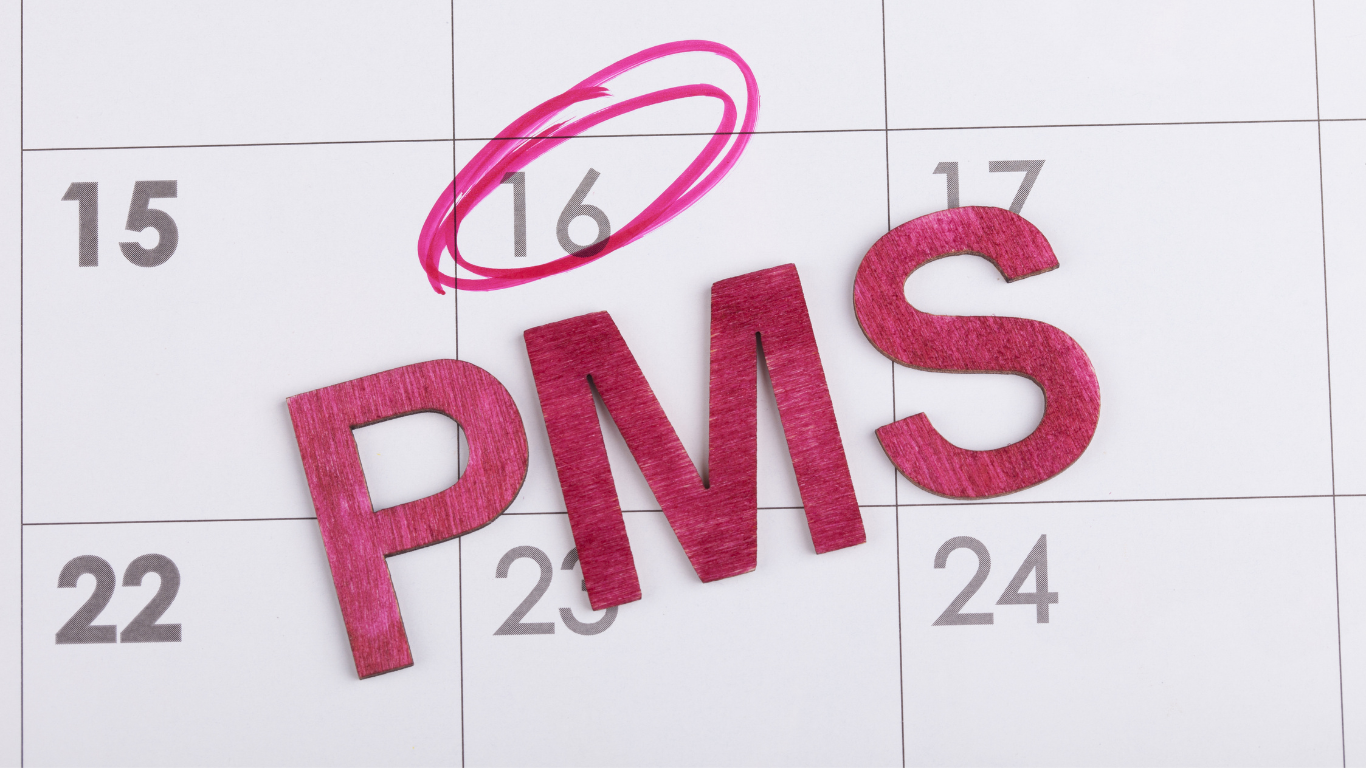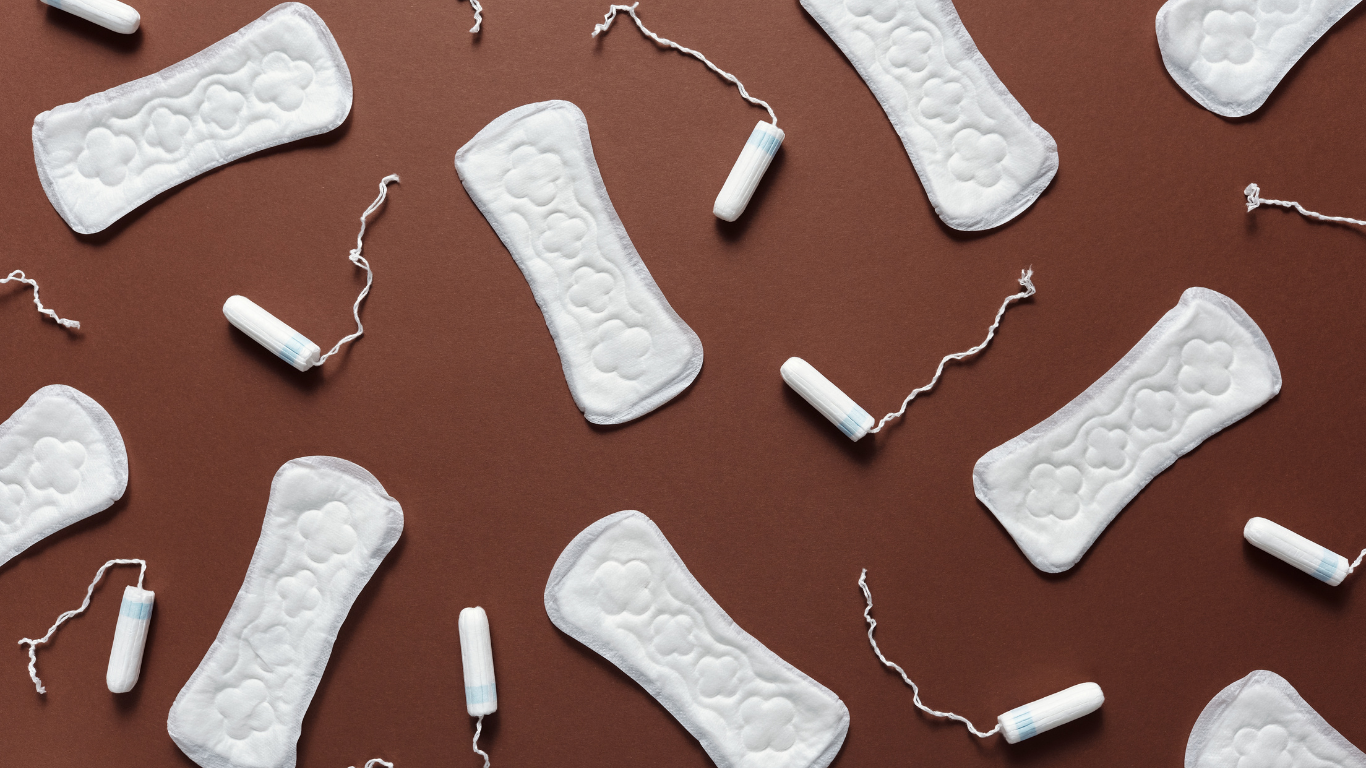
Although many of us might see having our period as an annoying inconvenience. Having a regular menstrual cycle, however, is a great sign that our body is working normally. It is also a really good sign of fertility. But what if your periods aren’t regular? If your periods have stopped altogether, this could be a sign you are experiencing hypothalamic amenorrhea. This article will guide you through what it means if you have lost your period and what to eat to get your period back.
Why have my periods stopped?
Most women have a regular period which arrives every 28 days (on average). Cycles that are shorter or longer than this, (21-40 days), are also considered normal so don’t worry if this is you. If your period stops and you miss 3 periods in a row and are not pregnant see your doctor to discuss this further.
When it comes to fertility, if we aren’t having a regular period then this means that we aren’t ovulating regularly. Without regular ovulation, it can be very difficult to get pregnant.
Aside from medical conditions such as PCOS, our periods can stop for several reasons including;
- Sudden weight loss
- Having a consistently low weight/low BMI – BMI calculator
- A low body fat percentage
- Disordered eating
- Doing too much exercise
- Stress
Your period and your fertility
If we aren’t having a regular period then this means that we aren’t ovulating regularly. Ovulation is the release of a mature egg from our ovary in the middle of each menstrual cycle. Without regular ovulation, it can be very difficult to get pregnant.
The good news is, if your periods stop for any of the above reasons you can take control and get your period back.
Hypothalamic amenorrhea
Hypothalamic amenorrhea is the medical term used to describe the condition when your periods and ovulation stop happening.
When we have hypothalamic amenorrhea the brain no longer sends signals to produce and release our reproductive hormones. This means levels of important fertility hormones (LH, FSH and oestrogen) become too low and our usual menstrual cycle and ovulation stop happening.
Why does hypothalamic amenorrhea happen?
Regular intense exercise, disordered eating, a low BMI, or low body fat percentage can leave the body with a lack of energy and nutrients. In this situation, the body stops carrying out functions it deems as non-essential such as reproduction. In this situation, the body will focus its energy on functions that are essential to maintaining life.
Body fat is a very important organ and it is involved with the production of our reproductive hormones. If the body fat percentage becomes too low, hormone production and hence reproductive processes stop.
Not all people who suffer from hypothalamic amenorrhea have a low body weight. People with a BMI in the healthy range can still lose their periods and stop ovulating. Here, although the body has enough energy to maintain a healthy weight it doesn’t have the energy reserves to continue with reproduction. Stress or a high level of activity may be the limiting factors at play here.
Hypothalamic amenorrhea recovery
The primary way to treat hypothalamic amenorrhea and get your period back is to provide your body with adequate energy. We can do this by
- Gaining weight if underweight
- Increasing body fat percentage
- Managing any psychological stresses
- Reduce exercise intensity and duration
What to eat to get your period back
The prospect of trying to gain weight can feel daunting for some people. This is especially true if you do not have a large appetite or feel like eating. To gain weight and get your periods back it is not only calories that are important. Yes, we want to increase calorie intake to increase our energy reserves but we also want to support our fertility. This means creating a nutrient-dense diet that supports both weight gain and the intake of all the nutrients we know support fertility outcomes.
Our top tips for what to eat to get your period back include:
- Eat sufficient protein as well as fat in order to gain muscle mass as well as body fat.
- Consume healthy fats – don’t be afraid to include extra virgin olive oil, nuts, nut butters, seeds and avocados. These are fertility-supporting fats that are anti-inflammatory and contain vital fertility-supporting nutrients such as vitamin E.
- Include whole grain carbohydrates in your diet, these are a great source of energy and nutrients such as folate.
Eating more regularly can also help especially if you find it difficult to eat larger meals especially at first.
Hypothalamic amenorrhea recovery signs
Your period may not be the only or the first sign that you are recovering from hypothalamic amenorrhea. In the process of getting your period back you may notice;
- Increased hunger. Don’t worry this is a good sign. Your body is using the additional energy you are providing it with and it is asking for the much-needed energy it requires.
- Increased cervical mucus. An increase in egg-white cervical mucus can indicate that you are ovulating again
- Improved mood. This can also help with libido which is great if you are trying to make a baby
- You get your period back. This is the ultimate one but don’t give up if it does not return straight away. It varies from woman to woman on how long it takes to return and can take a few months.
The final word
If you have lost your period firstly it is important to understand why. Secondly, it is important to understand what you can do to get your period back. Knowing what to eat and how much to eat is a very important part of getting your period back. Our weight gain for fertility guide contains all the guidance you need to gain weight in a fertility-supporting way. It also includes a 2-week meal plan that is specially designed for fertility-friendly weight gain to help you regain your periods to kickstart your fertility.
Last reviewed: July 2025
This article was written by the Fertility Dietitian UK content team and reviewed by Ro Huntriss MSc RD, Consultant Dietitian and Founder of Fertility Dietitian UK.



